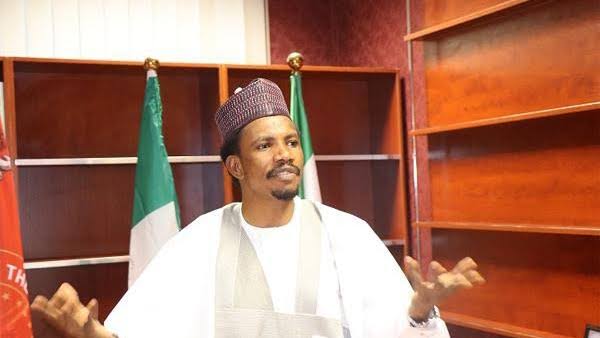In his State of the Union address this year, President Biden described workers as the backbone of our country. At USAID, we know this to be true, not just in the U.S., but for all nations around the world. Workers are the foundation of strong societies—boosting prosperity, driving innovation, and creating opportunity that benefits everyone.
On Labor Day, we honor these contributions—and the courageous workers who have advocated for centuries for fair wages, just treatment, and a voice for all in how they are treated. Throughout history, workers have successfully organized to secure rights such as retirement benefits and insurance; overtime pay and health and safety standards in the workplace; and paid holidays, including this one.
But the fight for workers’ rights is far from over. Here at home, we still have significant progress to make in securing more good paying jobs; eliminating labor rights abuses, including wage theft, forced labor, and child labor; and establishing safe and healthy working conditions, including for people working outdoors who are enduring record temperatures resulting from climate change.
Around the world, millions of workers face deplorable conditions and live in fear of retaliation if they attempt to organize into unions or speak out in defense of their rights. In May, Cambodian labor leader Chhim Sithar, recipient of the U.S. Department of State’s 2022 Global Human Rights Defender Award, was detained and sentenced to two years in prison for exercising basic rights to freedom of expression, association, and peaceful assembly, along with eight other union workers arrested and jailed alongside her. In June, Bangladeshi labor organizer Shahidul Islam was brutally murdered in the garment industry hub of Gazipur, after advocating on behalf of workers who had gathered to demand outstanding wages. And in the People’s Republic of China, the government continues to brutally subject people to forced labor based on their ethnicity, religion, or political views.
USAID supports local labor and civil-society partners working to improve respect for workers, fair wages, and decent work in 28 countries around the world. In collaboration with our partners, we train workers on the organizing, advocacy, and collective bargaining skills that help them stand up for their rights effectively. We provide legal aid to protect advocates and organizers who are wrongfully detained for exercising their rights to freedom of association and collective bargaining. We connect workers with one another to share knowledge, build solidarity, and test strategies for organizing in various sectors. And for those workers who seek decent work outside their home countries, we partner with national ministries to ensure that they are recruited in a manner that protects their rights. We also partner with private companies, promoting the inclusion of workers with disabilities and fighting discrimination in the workplace.
The Biden administration is calling on the U.S. government to advance workers’ rights globally through our diplomatic and programming efforts. Even if you are not working on these specific efforts, as USAID staff you can help promote, protect, and advance workers’ rights. You can stress the importance of labor rights in your exchanges with government partners, private-sector leaders, and local organizations; invite worker representatives to the table during in-country discussions; issue Mission statements in response to threats against labor leaders or violence against workers; and conduct due diligence to avoid supporting forced labor in USAID awards or procurement. And with respect to our own workforce, USAID is working to improve conditions across all staffing mechanisms, while striving to build and nurture a diverse workforce that looks like America. I urge you to continue identifying ways we can strengthen equity and inclusion, uphold rights, and respect dignity for everyone in the global USAID workforce.
Workers’ rights are the foundation of healthy, democratic societies, and supporting the world’s workers helps to advance so many of our key priorities at USAID. When we empower workers—the backbone of strong societies everywhere—they in turn help to unlock economic growth, promote fair competition, and advance basic human rights and dignity for all people.
By Samantha Power




